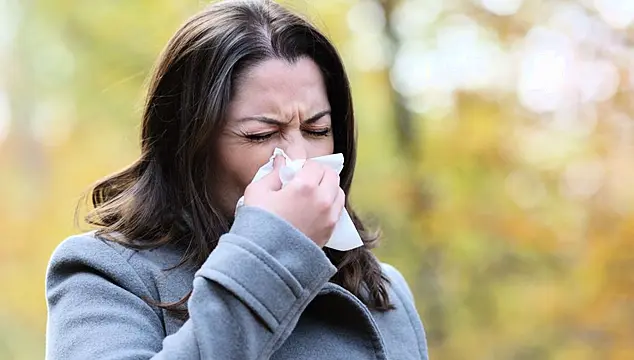As the cold snap and gloomy weather are expected to persist through the weekend, focusing on our health has never been more crucial.
Despite the cold, there are many effective ways to enhance your health and wellbeing during these winter months.
By boosting your immune system, staying active, and fuelling your body with seasonal foods, you can maintain vitality even when the temperatures drop.
How does cold weather impact our health?

Cold weather places additional strain on the body, impacting various systems and making it more vulnerable to illness.
“When temperatures drop, the body works harder to maintain its core temperature, which can result in constricted blood vessels, higher blood pressure, and increased strain on the cardiovascular system,” explains Dr Mohammed Enayat, GP and founder of HUM2N. “This is why cold weather is linked to a higher incidence of heart attacks and strokes, particularly in older adults or those with pre-existing conditions.”
Our immune systems also tend to function less efficiently in colder months.
“This is partly due to reduced vitamin D levels from lack of sunlight and lower exposure to fresh air,” explains Enayat.
But, there are some simple yet effective tips to help you thrive in colder weather to ensure your health doesn’t take a backseat.
1. Be smart with layering

“Rather than piling on thick, heavy clothing, opt for temperature-regulating fabrics that help maintain body heat while allowing moisture to escape,” recommends Enayat. “Merino wool and technical performance-wear can help keep you warm without overheating or sweating excessively, which can actually make you feel colder when damp.
“Additionally, keeping extremities warm – such as hands, feet, and head – is key to preventing heat loss, as these areas are highly vascular and prone to rapid cooling.”
2. Optimise hydration with electrolytes

“Many people drink less water in winter, but hydration is just as important as in summer, especially since dry, heated indoor air can lead to dehydration, dry skin, and brain fog,” says Enayat.
“Adding electrolytes (sodium, potassium, and magnesium) to your water helps enhance cellular hydration, keeping your energy levels stable and preventing dehydration-related headaches and fatigue.”
3. Consume warming foods

“Colder weather can slow digestion and metabolism, making it important to consume warming foods like soups, stews and ginger tea, which promote better digestion and nutrient absorption during colder months,” says Dr Vijay Murthy, co-founder of Harley Street clinic Murthy Health.
4. Eat more vitamin C and zinc-rich foods

“The immune system can become more vulnerable during seasonal changes, so supporting it with vitamin C and zinc, found in citrus fruits, bell peppers and pumpkin seeds, is crucial,” says Murthy.
5. Get vaccinated
Check with your GP to see which vaccines you are eligible for.
“We have seen record numbers of hospital admissions with influenza this year, and a lot of this can be avoided by simply getting vaccinated,” says Dr Jeff Foster, GP and medical director of Manual. “Getting yourself vaccinated can help protect elderly family or a very young person who might not have the same strong immune system.”
6. Make sure you exercise regularly

It’s important to be consistent with your exercise routine, whatever the weather.
“We know that exercise directly correlates with a strong and effective immune system,” says Foster. “People often exercise less in the winter because the weather is not so good, but you simply have to keep going.
“And the key to long-term longevity and better health is consistency. So whether the weather is good or bad, you need to keep exercising.”
7. Prioritise hygiene
Maintaining proper hygiene during the winter months is crucial in preventing the spread of illness.
“Frequent hand-washing lasting at least 40 seconds is essential, particularly after coughing or sneezing,” says Dr Zoë Lees from MedExpress. “Avoid touching your face, as hands can introduce viruses and bacteria to the respiratory tract, increasing the risk of infection.
“Additionally, minimising close contact with unwell individuals can help reduce transmission.”







